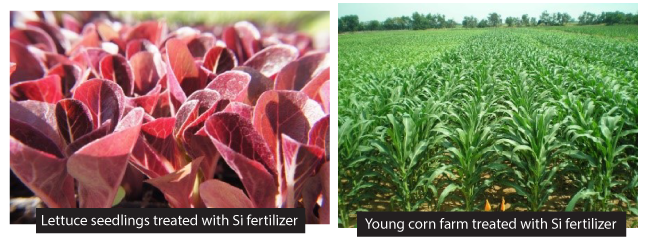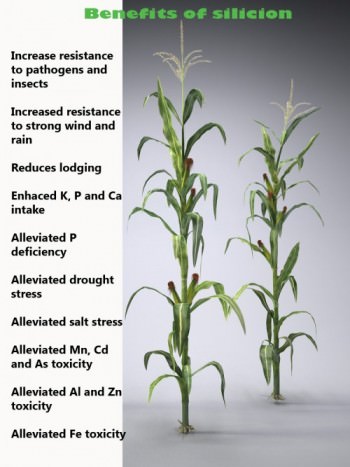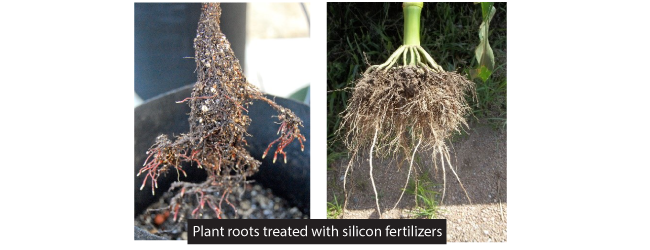
The beneficial effects of Si on plants have been demonstrated by many studies using pots, hydroponic, and field experiments. Silicon enhances growth and yield of all annual and vegetable crops, promotes upright growth (stronger and thicker stems, shorter internodes), prevents lodging, promotes favorable exposure of leaves to the light, provides resistance to bacterial and fungal diseases and decrease some abiotic stress as temperatures, salinity, heavy metal and aluminum toxicity.
According to science researches, silicon increase plant’s resistance to many plant diseases such as powdery mildew, septoria and eye-spot and also many insect pests. Silicon has positive effect on the biomass yield under deficit irrigation. Plants subjected to draught, treated with silicon, maintained higher stomatal conductivity, relative water content and water potential. It helps leaves become larger and thicker, thus limiting the loss of water through transpiration and reduces water consumption.
Silicon shows great influence on the development of plant roots, thus allowing better root resistance in dry soils and its faster growth.
Silicon is added to plants as a fertilizer, which can be in liquid or solid-state (e.g. Biacsil, Silifert, Nitrosil), usually applied at the time of planting, but in can be applied at any time during the growing season.
Silicon fertilizers in agriculture are still not widespread and they are considered as a modern farm technology, side by side with microbiological fertilizers. Since it’s a natural element, silicon-based fertilizers can use all farmers, whether they practice integration, conventional or organic farming. No matter on farming type, the usage of silicon fertilizers farmers can record in AGRIVI system. It allows them to track spent quantities of fertilizers per all crop productions, per all their fields, and also its cost.
Increase your yield and sustain crop productivity with proper silicon management – use AGRIVI system.





